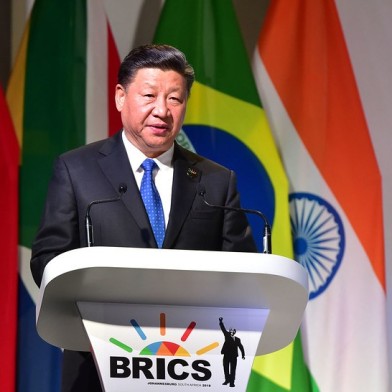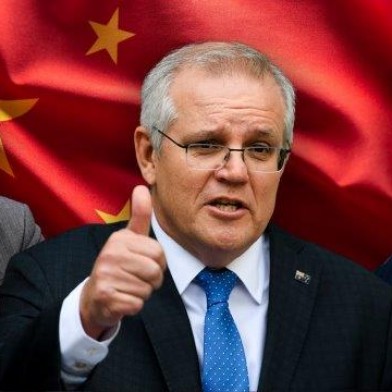Rumours of a “Jaukus” announcement have been kicking around this week, and while the members of Aukus have agreed they will be consulting and partnering with Japan on military tech – they insist we don’t call it “Jaukus”.
In a joint statement released earlier this week the Aukus members confirmed the closer relations as part of stage two of the Aukus strategy.
Thursday NZ time will see a meeting between US President Biden and Japanese PM Kishida at the White House. Some pundits are picking an announcement on Japan’s on-going relationship with Aukus shortly afterwards.
The idea has again drawn criticism from China, which said it was “gravely concerned” about the potential for Aukus to be “stoking bloc confrontation”.
Australian defence minister, Richard Marles, UK defence secretary, Grant Shapps, and US defence secretary, Lloyd Austin, told media this week they were continuing to seek advanced military capability “in support of regional stability and security”.
While Japan maintains strong defence ties with both the US and Australia and shares concerns about security in the Indo-Pacific, any potential expansion of AUKUS to include Japan would have to align closely with Tokyo’s strategic interests, diplomatic relations, and the optics with the Japanese voters, who are very wary of anything looking like increasing militirisation.
While discussion of Aukus usually focuses on Australia’s planned purchase of nuclear-powered submarines, the boats are but “Pillar 1”.
Pillar 2 includes artificial intelligence, cybersecurity, electronic warfare and hypersonic and counter-hypersonic capabilities.
This is where Japan is possibly to become involved, bringing some serious technical expertise and funding to develop high-tech systems and components.
The Australian prime minister, Anthony Albanese, said this week that Japan was a “natural candidate” for collaboration.
“We’ve already stepped up our defence relationship with Japan in agreements I’ve signed with prime minister Kishida, including access by Japan for Australian bases,” he said.
“We have had recently joint naval operations with Japan, including here in Australia, but, when we look at pillar 2, that project-by-project approach is there. What is not proposed is to expand the membership of Aukus.”
Defence Minister Marles said Japan had a “very advanced technological industrial base” and did “a lot of incredible work in defence industry as well”, and Defence Industry Minister Pat Conroy added that the tech projects would be focused on “technological collaboration where it makes sense for all parties involved”.
“It’s not about Japan joining Aukus. It’s not about Japan being part of the Five Eyes intelligence community,” he told the ABC.
China’s foreign ministry spokesperson, Mao Ning, said the Aukus partners were “sending signals of Aukus expansion” and escalating an arms race in the Asia-Pacific region.
“China is gravely concerned about it,” Ning said. “We oppose relevant countries cobbling together exclusive groupings and stoking bloc confrontation.
“Japan needs to earnestly draw lessons from history and stay prudent on military and security issues.”
JAUKUS would mark the next stage in Japan’s emergence in the last decade from its post-1945 pacifist outlook, which left it sitting under the US security network.
Japan’s formal participation would also broaden AUKUS into a wider regional partnership, and for Australia at least, involvement in one of the largest security alliances since ANZUS.
Perhaps more importantly, Japan buying into Aukus would kick the door open for South Korea, the Philippines, and others to sign up. Since Aukus was announced in 2021, New Zealand, Canada, South Korea have also been mentioned as potential partners.
Speaking in Australia during a visit in February, Defence Minister Judith Collins invited Australian officials to the Beehive for an Aukus update. “We really want to look at what the opportunities are and whether or not its something we could be part of,” Collins told reporters, adding that New Zealand could offer space and technology expertise.
But while their may be opportunities via Aukus to come alongside our traditional defence partners, New Zealand also faces the potential ire of China, and the hugely significant trading relationship between the two countries.
Would the Aukus nations step up to offer NZ alternative markets if the China relationship soured due to Aukus ? That’s the salient question to ask when trade and foreign policy are so intimately intertwined.
- Asia Media Centre



